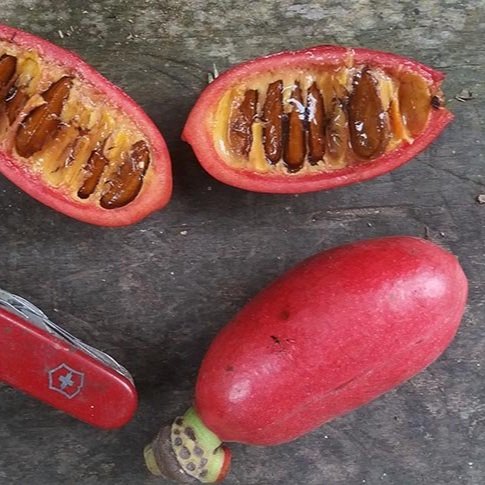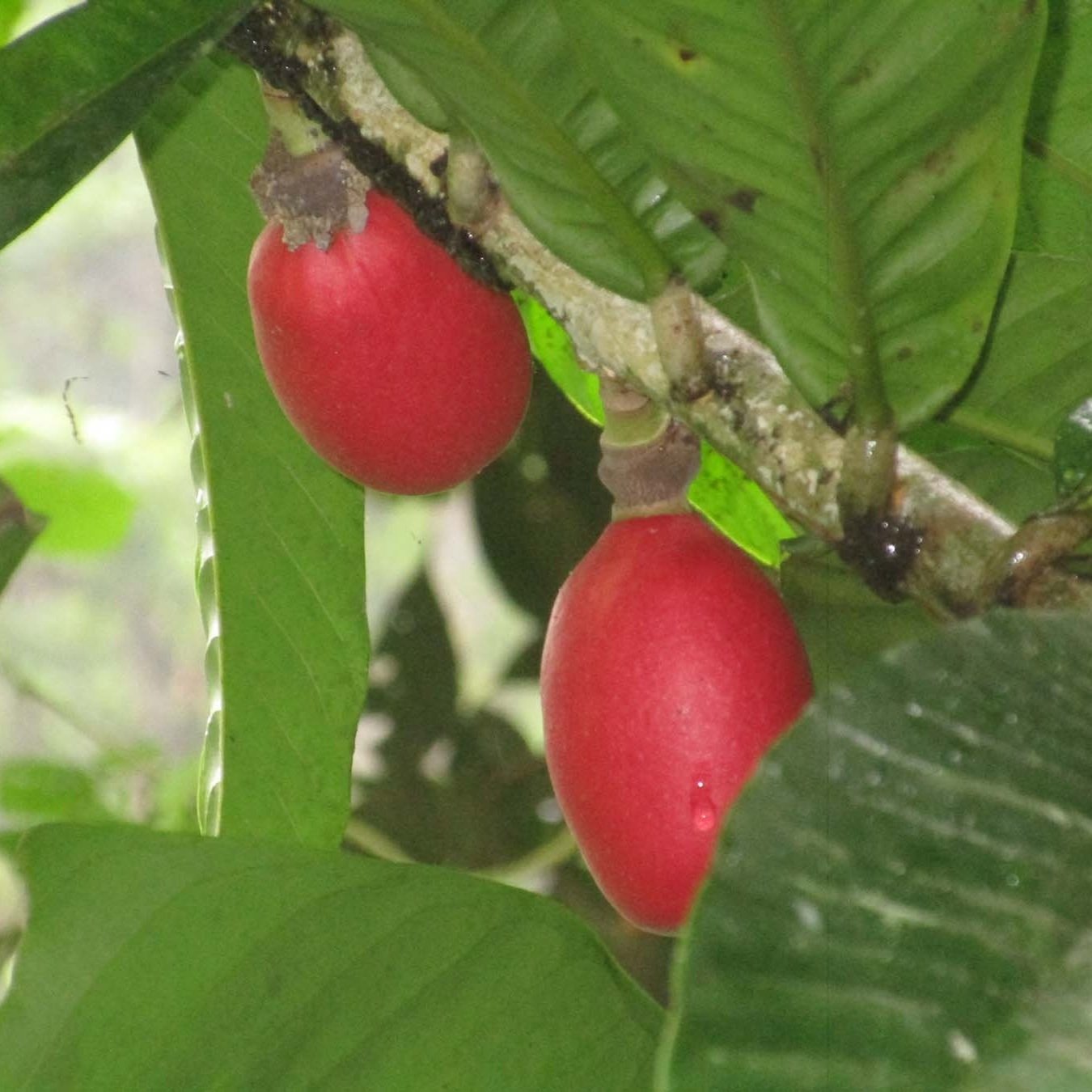Uvariodendron Connivens
Seeds were imported from Ecuador. The fruit of Uvariodendron connivens is often described as sweet and aromatic, with a flavor reminiscent of tropical fruits, making it a delightful treat when eaten fresh. Native to the tropical rainforests of Africa, this species is part of the Annonaceae family and thrives in warm, humid climates. The tree is valued not only for its delicious fruit but also for its ecological role, providing food for wildlife and contributing to forest biodiversity. Though relatively uncommon outside its native range, the fruit is highly prized by locals, and its unique flavor and cultural significance make it a fascinating species for enthusiasts of exotic fruits. Seeds are limited and shipped in humid vermiculite.
Seeds were imported from Ecuador. The fruit of Uvariodendron connivens is often described as sweet and aromatic, with a flavor reminiscent of tropical fruits, making it a delightful treat when eaten fresh. Native to the tropical rainforests of Africa, this species is part of the Annonaceae family and thrives in warm, humid climates. The tree is valued not only for its delicious fruit but also for its ecological role, providing food for wildlife and contributing to forest biodiversity. Though relatively uncommon outside its native range, the fruit is highly prized by locals, and its unique flavor and cultural significance make it a fascinating species for enthusiasts of exotic fruits. Seeds are limited and shipped in humid vermiculite.
Seeds were imported from Ecuador. The fruit of Uvariodendron connivens is often described as sweet and aromatic, with a flavor reminiscent of tropical fruits, making it a delightful treat when eaten fresh. Native to the tropical rainforests of Africa, this species is part of the Annonaceae family and thrives in warm, humid climates. The tree is valued not only for its delicious fruit but also for its ecological role, providing food for wildlife and contributing to forest biodiversity. Though relatively uncommon outside its native range, the fruit is highly prized by locals, and its unique flavor and cultural significance make it a fascinating species for enthusiasts of exotic fruits. Seeds are limited and shipped in humid vermiculite.






